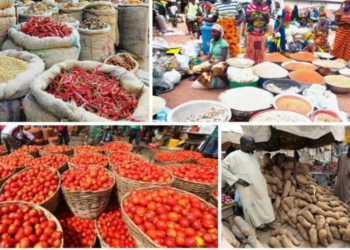According to the data released by the National Bureau of Statistics (NBS) on capital importation for Q4 and full-year 2020, the total amount of foreign investment inflows into the Nigerian economy declined by 59.7% y/y to US$9.68bn in 2020 from US$23.99bn in 2019. In Q4 standalone, the foreign inflows stood at US$1.07bn, a 71.9% decline y/y.
The breakdown of the full-year data showed that the largest share of the total inflows is from portfolio investment (accounting for 53.1%), trailed by other investment (36.3%) and foreign direct investment (10.6%). Further analysis showed that the reduction in foreign inflows stems from a 68.6% y/y decline in portfolio investment and a 47.5% y/y decrease in other investments which significantly offset the 10.1% y/y increase in foreign direct investment.
READ: Capital flows to Nigeria down for the second consecutive quarter by 7.8% q/q
Unsurprisingly, the significant decline in portfolio investment evidenced by low figures recorded in the last three quarters of the year was largely due to elevated vulnerabilities brought by the outbreak of Covid-19, FX pressures and depressed fixed-income yields.
We recall that the sharp decline in oil prices triggered by falling global demand for crude oil led to lower oil earnings which made FPIs to reduce their positions in Nigeria’s assets. The contribution of FPIs remains skewed to investment in money market instruments (hot money made up 80.8% of the FPIs in 2020) which continues to make the economy extremely vulnerable to external factors beyond the control of policymakers.
READ: FPI and FDI drop to $68 million and $18 million respectively in April, lowest since 2016
We note the slight improvement in foreign direct investment (up 10.1% y/y), however, still continues to reflect the inability to attract the much-needed capital to support the real sector and local economy in general. In our view, the longer-term prospects for FDI can only be achieved with stable business & government policies, better infrastructure, improved security and strong investor protection laws. Among other suggestions is the need to attract capital inflows to many states of the country as over 50% of the 36 states record no investments over time.
READ: Atiku says crypto prohibition will restrict inflow of capital into Nigeria
CSL Stockbrokers Limited, Lagos (CSLS) is a wholly owned subsidiary of FCMB Group Plc and is regulated by the Securities and Exchange Commission, Nigeria. CSLS is a member of the Nigerian Stock Exchange.
























